06 August 2019
Austempered Ductile Iron Production Technology From Base Material Produced By Ferro-Casting Industry In Indonesia
Rianti Dewi Wulansari Sulamet Ariobimo, 2003 University of Queensland Abstract The quality of... Read More
The Australia Awards are prestigious, transformational scholarships and short courses offered to emerging leaders for study, research and professional development in Australia

06 Feb 2016
 Local Women’s NGOs and the Reform of Islamic Law in Aceh: Case Study of MISPI
Local Women’s NGOs and the Reform of Islamic Law in Aceh: Case Study of MISPI
Dina Afrianty, May 2010
Asia Institute and Law School, The University of Melbourne
Abstract
This thesis looks at the responses of local women’s NGOs to the implementation of Islamic law in Aceh from 2006 to June 2009. In it, I argue that although the implementation of Islamic law in the province has placed some restrictions on women’s freedom, it has not prevented women from engaging in public life. Acehnese women who have joined local women’s movements have challenged the legal system and have demanded the reform of Qanun, or Provincial Regulations, the chief mechanism by which Islamic law has been introduced in Aceh. The implementation of Islamic law in Aceh has thus, in fact, motivated, even enabled, women’s NGOs and other elements of civil society to become involved in wider discussion about the future faces of ‘sharia’ in Aceh.
The granting of Aceh of the right to apply precepts of ‘syariat’ in 1999 and the introduction of Qanun following the passing of Law No 18/2001 on the Special Autonomy have been responded to differently by different groups of Acehnese. Most Acehnese see the implementation of Islamic law as a path to authenticity and the return to Acehnese indigenous values, in particular Islamic values. Many hope it will be a path to regain Aceh’s glorious past and distance them from Jakarta. However, there are also many Acehnese who demand reform of the Qanun, considering them to be biased and gender-insensitive.
Local women’s NGOs in Aceh have demanded reform of the Qanun and have promoted policy changes. Local women’s NGOs develop people’s awareness of their rights in Islam. They promote values and practices that do not discriminate against women. Local women’s NGOs are adamant that legal reform should be carried out by rereading, or at least reinterpreting, the sources of Islamic law. The arrival of international organisations and foreign NGOs following the devastating tsunami on December 26, 2004 have introduced local women’s NGOs to Western/international norms of Feminist discourse and human rights, in particular women’s rights, and to new discourses such as gender equality and justice. These have now become part of their own, Acehnese, conversations.
A case study of MISPI, Mitra Sejati Perempuan Indonesia (True Partner of Indonesian Women), a local women’s NGO that responds to the implementation of Islamic law demonstrates local women’s NGO’s agency to enable Acehnese women to take active roles in Aceh’s democratisation. MISPI understands that when working in a society where Islam and tradition are strongly entrenched in people’s lives it needs to ensure that it works within that context. To do so it seeks to preserve its Islamic credentials while at the same time challenging conservative interpretation of Islam by pursuing a reinterpretation of the Islamic texts. It has developed networks with the male-dominated government and other authorities such as Ulama and the dayah community (traditional Islamic education) to introduce what it sees as more egalitarian interpretations of Islam. MISPI’s activities thus mirror the broader agenda of Muslim women NGOs, which is framed under the rubric of ‘Islamic Feminism’ to challenge the resurgence of Islamic conservatism. Although MISPI and its activists are still in their initial stages of introducing their ideas about Islamic equality and justice, the presence of democratic mechanisms in Aceh will allow MISPI to advance its agenda, which it is hoped will ultimately result in legal and social reforms that will further the empowerment of Acehnese women.
Share this article on:
 Related Article
Related ArticleThis website uses cookies to improve your website experience. We may also use cookies to analyse website data so that we can improve our online services. To find out more visit our privacy policy.

